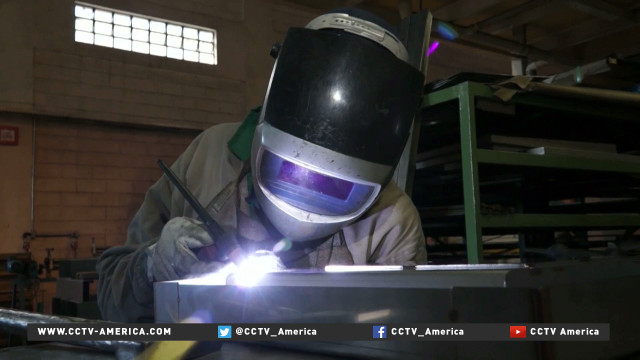The drought in Brazil has increased the risk of an energy shortage in the country. Businesses and people are already looking for other options. CCTV America’s Paulo Cabral reported this story from Sao Paulo.
Almost 75 percent of the electricity in Brazil comes from hydroelectric plants. However in southeast Brazil, where some of the biggest hydroelectric plants are based, a historic drought has dropped reservoir levels to record lows. Experts have said rationing water is a real possibility.

Brazil\'s hydroelectric industry could face energy crisis due to drought
The drought in Brazil has increased the risk of an energy shortage in the country. Businesses and people are already looking for other options. CCTV America's Paulo Cabral reported this story from Sao Paulo.“This is a political decision, a very hard decision has to be made but the situation is, the earlier the rationing starts, the less severe it will be,” Virginia Parente, energy expert at the University of Sao Paul said. “An important decision will be made and I guess it will be made in the next few weeks.”
The company Komec had already changed some of its processes to use less water, investing in dry technology to clean the parts it manufactures. Owner Joe Carlos Possenti said there is no way he can give up on any of the electricity he uses.
“Electricity is essential for my company. All the equipment here works on electricity. So, if there’s rationing or power cuts, production simply stops,” Possenti said.
Felipe Rocha, owner of the N.O. Hardware shop said interest is surging.
“There even some specific models that are already out of stock. The more expensive, better ones,” Rocha said.
The price of electricity is already going up in Brazil as thermal plants are activated to make up for the drop in hydroelectric generation. Business and domestic consumers haven’t been happy with this, but they realize they are still off paying more than not having it at all.
 CGTN America
CGTN America
